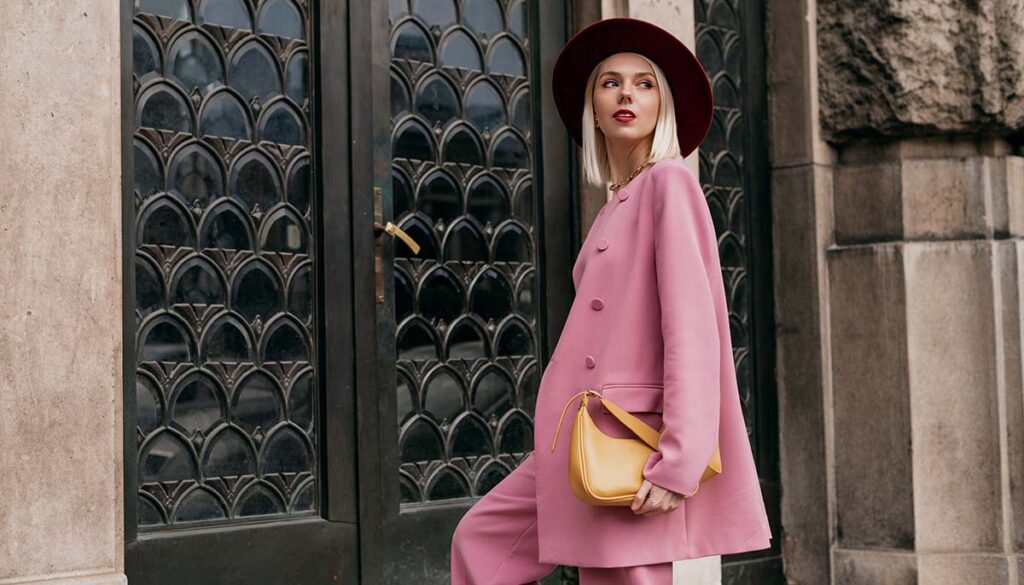Who doesn’t love sharing a meal with friends? Breaking bread is an ancient tradition that holds just as much meaning today—even if the rules for polite hosting and dining are a lot different. Whether you’re a guest or a host, these are outdated etiquette rules that you have my permission to break.
No Phones at the Table

In my ideal world, everyone would put their phones in a basket at the front door and not get them back until the party was over. Unfortunately, that’s just not going to happen. While it’s a bit rude for someone to stare at a phone screen instead of interacting with their fellow guests, there’s not much that the host or hostess can do about it.
There are good reasons to keep your phone nearby, anyway! Guests might need to be reached by a babysitter or partner, for one thing. For another, it’s practically automatic to reach for your phone to settle a debate—or show your friends a really cute picture of a pet.
Do your part to keep the conversation flowing during the party. Etiquette consultant Jodi R. R. Smith advised readers of Martha Stewart’s blog to ‘[b]e prepared with witty stories and interesting tales to keep the conversation lively. But don’t monopolize the air-time. Be curious about others and ask engaging questions of others.”
Lots of Fancy Utensils
What is this, Downton Abbey? Those elaborate, old-fashioned sets of dinner utensils existed for two reasons—and neither of them is for convenience. They’re a way to show off the fact that you can afford twenty pounds of sterling silver—and to exclude anyone who hasn’t learned how to use the “correct” fork. If nothing else, going overboard on the place settings at your party just means more dishes to wash at the end of the night.
Read More: A History of Makeup From Around the World
Waiting to Eat Until Everyone Has a Plate

This is a personal pet peeve—why should I let my food go cold until everyone else gets theirs? I want my friends to enjoy their meal at peak deliciousness. Old-school etiquette guides will tell you to wait until the hostess has picked up her fork to start eating.
It’s no longer considered a faux pas to eat before everyone at the table—whether you’re dining at a restaurant or at someone’s house. So don’t be shy about digging in! To avoid this issue altogether, set up a buffet or family-style dining. Keep things casual with your loved ones and enjoy your dinner party, friend.
Bringing a Hostess Gift
This one might be controversial, but it’s not required to bring a hostess gift to a dinner party. And if you’re a regular guest at someone’s house, it might seem downright strange. If you want to bring a bottle of wine to share with the table, then go for it. But nobody needs or wants a random scented candle from your hall closet that you threw in a gift bag at the last minute because you forgot to buy a hostess gift.
The first time you attend a party at someone’s house, it’s a lovely gesture to bring a consumable gift—we’re talking beverages, candy or chocolates, fresh bread, and so on. Fresh flowers also belong on that list. But anything that the recipient is expected to keep in their home for more than a week isn’t a gift—it’s an obligation.
Read More: Creative Gift Ideas to Get Your Friends on Etsy
Conforming to a Strict Dress Code

This etiquette rule is so out of style, it’s not even funny. But you’ll still see the occasional guest worrying about whether they’re going to be underdressed at a dinner party—or resenting the idea of being asked to dress up.
As a society, we generally don’t “dress for dinner” anymore. This rule of etiquette comes from the same class-based snobbery as having a million different silver utensils for every meal. Until ready-to-wear fashion became widely available in the early 20th century, clothes were handmade and super expensive. Most ordinary folks couldn’t afford more than two or three sets of clothes, and for many of the working classes, even that was a luxury. Changing out of your day clothes into an entirely different—and much fancier—set of evening clothes was something only the wealthy could afford.
That being said, it can be fun to put on a nice dress or suit to share a meal with your loved ones. If you want to host a dinner party with a cocktail attire dress code, then communicate that clearly in advance. However, most modern dinner parties are going to skew much more casual. Ideally, your guests will find a happy medium between evening dress and sloppy sweats. And if they don’t? Hey, it’s just clothes.
Offering to Help in the Kitchen
You might feel like it’s polite to offer to help out in the kitchen when you arrive, but the truth is that your assistance might not be as helpful as you think. Unless you know the host really well—we’re talking lifelong besties, here—then please reconsider awkwardly lurking in the kitchen and asking if there’s anything you can do.
If you ask whether you can bring anything and get told no… then take that word as gospel. Showing up with an unexpected side dish is even worse than bringing an uninvited guest.
The only exception to the “no help” rule is after the meal. If you are close with the host or hostess, then offering to help clean up is a kind gesture. According to Lizzie Post, the great-granddaughter of famed etiquette maven Emily Post, “If your friends volunteer to help with the dishes, there’s no reason to say no, unless you truly want them to feel like they didn’t lift a finger all evening.”
Toasting with Alcohol

But you can’t toast with water!
Have you ever heard that protest before? There’s this idea that in order for a toast to be “real,” it needs to be made with an alcoholic beverage. This tradition needlessly excludes people who can’t, won’t, or don’t drink. In fact, I’d go so far as to say that pressuring guests to drink is a major dinner party foul.
Let your guests raise whatever glass they want. And don’t make a big deal out of it if they’d rather have water, tea, or seltzer. People usually have a valid reason to skip out on the beer, wine, or champagne, and that reason is no one else’s business. If any of your other guests ask intrusive questions about the decision, it is your responsibility as a host to steer the conversation in another direction.
Bringing Your Own Food or Eating Early
Before you think that I’ve totally lost the plot with this outdated dinner party etiquette rule, hear me out. If you’re someone who has special dietary needs or restrictions, it’s okay to arrange with the host to bring your own meal. Some people at the table might think that it’s a little strange, but protecting your health is more important. It’s also within the bounds of propriety to ask in advance what the menu will be so that you can make a game plan.
If you’re not comfortable bringing your own dish to ensure that you can safely eat at the party, then have a meal before you arrive. Again, just give your host a head’s up that you’re there for the company and not the food. Open communication is key to ensuring everyone is chill. And if your host is not someone you know well enough to have this discussion with, it might be best to skip this invitation. Sometimes, opening up a gluten-free can of worms about your dietary restrictions just isn’t worth the hassle.
Showing up Exactly on Time

This might be controversial, but at a casual dinner party with friends, showing up on time is kind of rude. If someone rings the doorbell at precisely 7:30—or, heaven help us, 7:15—I’m not going to be ready. In fact, I’m going to be flustered by trying to entertain my guests and finish up all the last-minute tasks I need to do to get ready.
It’s more socially acceptable to roll in ten minutes later than the time on the invitation. According to etiquette expert Lizzie Post in conversation with Vanity Fair, “Walk around the block, go pick up some fresh flowers, anything. It is rude and it puts your host in an uncomfortable position, so whatever you do, do not arrive before the time listed on the card.”
If you’re going to be later than ten or fifteen minutes, let your host know with a single text. They don’t need a thrilling live-Tweet experience as you narrate your journey.













